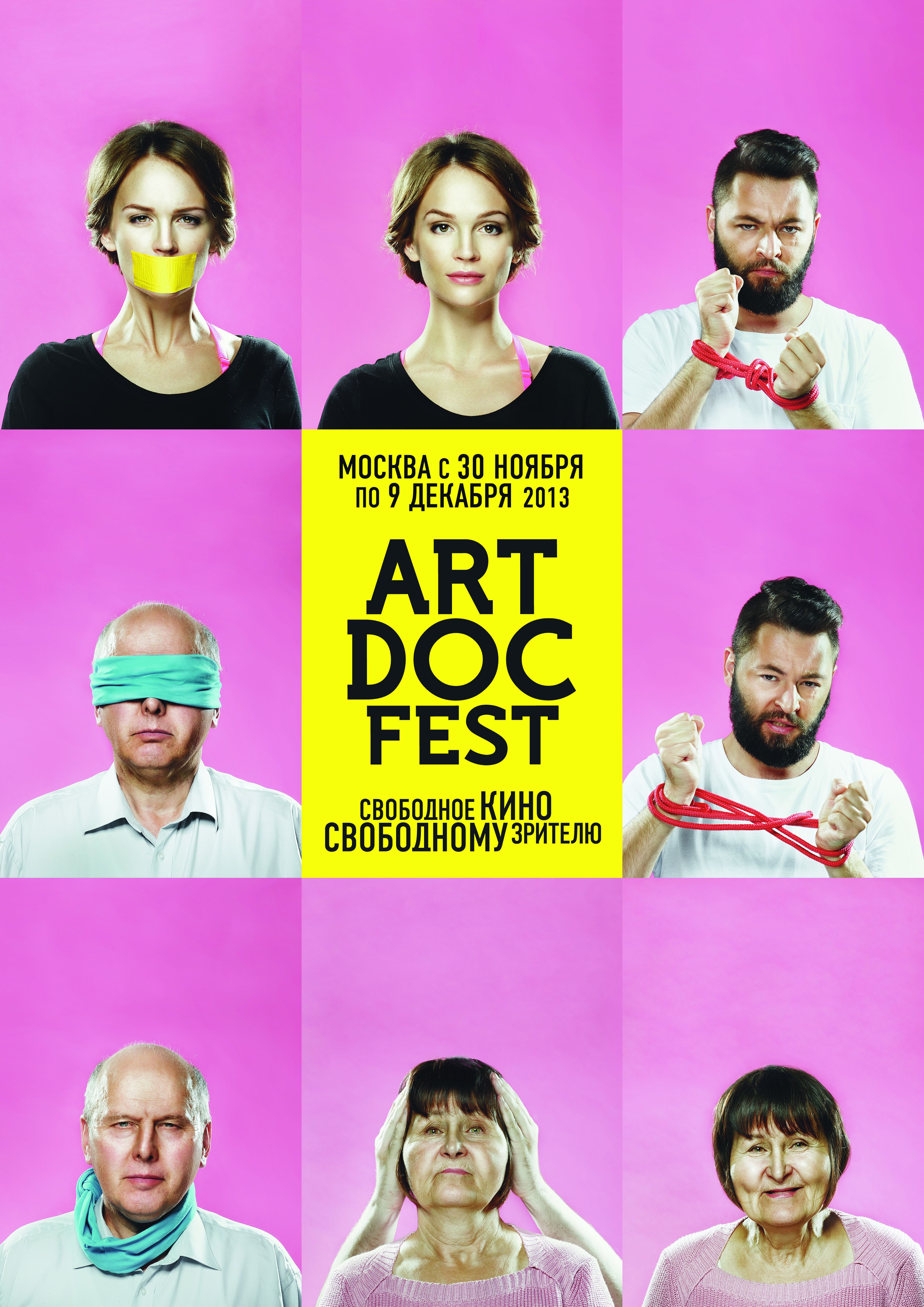Wednesday, 4 December 2013
Art Doc Fest 2013: the first days.
Well over a hundred films are being shown at this year's Art Doc Fest and the last for some time to be held in Moscow's Khudozhestvenni cinema (which after the festival will be closed for rebuilding). Art Doc Fest prides itself on getting even the politically controversial documentaries to the screen and this year it is Putin's Games which promises to be its flagship controversial film of the year) as well as Alina Rudnitskaya's socially sharp film Blood (in which Rudnitskaya once again looks at a social institution - this time blood banks- with a critical eye) which will serve to bolster its reputation of it being one of the freer 'mainstream' festivals on Russian soil. However, neither of the two films on Pussy Riot (the Lerner and Pozdorovkin film which has just been shortlisted for an Oscar award and the film by the collective Gogol's Wives, Pussy versus Putin which won the IDFA Competition for Best Mid-Length Documentary) are getting a showing at the festival. I'll review these films in a separate post for their absence is significant (Lerner and Pozdorovkin's film had been expected at Art Doc Fest) even though one's reading of this absence can't be put down to a straight issue of censorship.
That which is on offer at Art Doc Fest is hard to categorise even though a number of themes have already crystallized. Of competition films shown so far revolt and revolution are on the agenda but not in the way one normally expects them. Here Kossakovsky (with 32 documentary students of the IDEU Pompeu-Fabra University in Barcelona) have attempted a portrait of revolt as ballet in their film DEMONStration whereas Alyona Polunina in her film Nepal Forever has added clear farcical elements to her portrait of two St Petersburg revolutionaries on a trip to Nepal to conciliate between revolutionaries. (Her previous film also shown here The revolution that wasn't gave a more rather tragic portrait of Limonov's National Bolsheviks). Whereas Polunina's new film generated a lot of laughs among the audience last night it seemed to lack the gravitas of her earlier film. Anna Moiseenko's S.P.A.R.T.A. Territory of Happiness, a portrait of a commune trying to rebuild local communism in the Post-Soviet space (and shown first at last year's festival but reshown again this year) gives a much more balanced view of utopian dreams and realities.
Marina Razhbezkina has made a return to directing after concentrating on her pedagogical career at her School of Documentary Films and Theatre with a new film Optical Axis which attempts to look at contemporary reality through a comparison with the photographs of Maxim Dmitriev taken a century ago. It is a gentle social portrait which includes an extraordinary moment of filming the process of a man carving out a wooden spoon in real time. Filmed in natural light, the film offers little sharp social commentary but regards its protagonists generally with a certain warmth.
Sergei Loznitsa's return to documentary with Letter after his two feature films is another look at the rural, peasant countryside. Shot through a pre-World War Two, the halo-like figures in the blurred film give appearances of almost ghost-like beauty. An extraordinary twenty minutes which makes much else watched on the same day seem far too conventional even when they recount exceptional stories of hardship.
Another competition film Darya Verditskaite's The last one's ... beyond the river (За рекой... последние) also looks at rural Russia through an optic of a dying world. Not as radical as Loznitsa's poetic arthouse, the films feels overdone and doesn't quite know when to end. But as a debut film it still suggests that the director will have much to say in the future.
It was a great pleasure to watch Kossakovsky's early film The Belovs (Беловы) -a film that gets better at every viewing. A retrospective of festival director Vitaly Mansky has also been without doubt another important part of the festival (if one could have only drawn oneself away from the main location of the festival). Every now and again one stumbles into films that one didn't even suspect were on show such as the portrait of one of Russia's greatest untold secrets, Shavkat Abdusalamov: art director of Tarkovsky and Klimov, artist, author , actor, director in his own right and friend of Antonioni, Tonino Guerra and Yuri Norstein. The film portrait The Eternal Wanderer (Вечный Странник) may not, in itself have been innovative in technique, but it was a joy that someone has made a portrait of this unackowledged but great artist. A shame, though, that only three people came to view this film during its single showing at the festival.
Coming days promise much more including many of the long awaited competition films.
Subscribe to:
Post Comments (Atom)





No comments:
Post a Comment